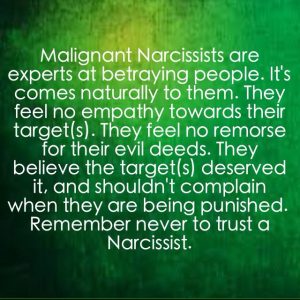Americans are obsessed with narcissistic leaders, or at least they have an ambivalence between the ones they like and the ones they promote. A case in point is Donald Trump. Not that he is alone. At various times, similar attention and popularity have been heaped by the public and especially by the media for leaders such as Steve Jobs, Lee Iacocca and Larry Ellison.




Some observers have openly called Trump a narcissist in terms of a classical definition. A number of mental health experts have used the Narcissistic Personality Disorder description contained in the psychologists/psychiatrists Bible, the DSM-V as an assessment for Trump.A number of mental health professionals have written about Trump’s narcissistic personality pathology and its impact on his governing. Forensic psychiatrist Bandy X. Lee and psychiatrist John Zinner are two prominent psychiatrists who have voiced their views. A group of 350 psychiatrists and other mental-health professionals submitted a petition to Congress during the Impeachment hearings claiming that President Donald Trump’s mental health was rapidly deteriorating
Dr. John Gartner, a psychologist,and one of the contributors to 2017 book The Dangerous Case of Donald Trump, which contains essays from 27 psychologists, psychiatrists, and mental health professionals on the “clear and present danger” that US President Donald Trump’s mental health poses to the “nation and individual well being.” Gartner warns that Trump exhibits behaviour far worse than typical narcissism. He displays a rare form of Narcissistic Personality Disorder called malignant narcissism: “[This] combines narcissism with paranoia – all of his crazy conspiracy theories, his projections of evil on the press and to minorities and anyone who disagrees with him, his constant sense that he’s a victim – and antisocial personality disorder which is the personality disorder of criminals, people who lie and have no conscience, who violate and exploit the rights of others and have no remorse about it.”
Narcissistic Personal Disorder (NPD) Traits
- A grandiose sense of self-importance;
- Sense of entitlement to special treatment and to obedience from others.
- A preoccupation with unlimited fantasies of success, power and brilliance;
- Believes that he is “so special;”
- Requires excessive admiration;
- Intensely jealous of others and the belief that others are equally jealous of them.
- Takes advantage of others to achieve his own ends;
- Lacks empathy for others;
- Is super-sensitive to criticism.
Dana Millbank, writing in the Washington Post, retrieved a number of Trump’s quotes from his campaign speech that could be illustrative of the criteria that Marsh cited: “I’m really proud of my success,” “I’ve done an amazing job.” Millbank also completed a content analysis of Trump’s campaign speech in which he was self-referenced 257 times.
Are Narcissistic Leaders More Productive?
The public in general and even management experts are hypocritical about what makes a good leader. On the one hand we exalt and praise leaders who are basically nasty and abusive (called a****les by some) because they are financially successful and on the other hand, research shows that humble leaders whose focus is to serve others are equally successful, but more importantly, capture the hearts and loyalty of others. Which do we value more?
Not that their hubris doesn’t pay off according to a research study completed by Charles A. O’Reilly III at Stanford’s business school. O’Reilly and his colleagues surveyed employees in 32 large, publicly traded tech companies. He contends that bosses who exhibits narcissistic traits like dominance, self-confidence, a sense of entitlement, grandiosity and low empathy, tend to make more money than their less self-centered counterparts, even if the lower-paid CEOs exhibit plenty of confidence. O’Reilly says of the narcissists, “they don’t really care what other people think and depending on the nature of the narcissist, they are impulsive and manipulative.” O’Reilly goes on to argue the longer narcissistic leaders are at the helm, the higher their compensation in comparison with the rest of the leadership team, or in some cases the narcissistic bosses fire anyone who dares to question or challenge them.
There is a dark downside to this appearance of success however, O’Reilly contends. Company morale often declines, and employees leave the company. And while the narcissistic or abusive leaders may bring in the bigger paychecks, O’Reilly says there is compelling evidence that they don’t perform any better than lower-paid, less narcissistic counterparts. This argument has been supported by Michael Maccoby in his book, The Productive Narcissist: The Promise and Peril of Visionary Leadership.
While Steve Jobs was a charismatic visionary, and brilliant innovator, Walter Issacson’s biography showed him to be rude, controlling and mean-spirited, never hesitating to humiliate Apple employees and take credit for others’ work. Since his death, there has been a flood of articles and books and seminars extoling Job’s leadership style, many of which argue that it’s okay to be an “asshole” as long as you are financially successful. In my article in The Financial Post I make the point: “The concern I have, and that it is reflected by other leadership experts, is the faulty cause and effect, and “ends justifies the means” arguments that hold up Jobs as a leader to be emulated. It goes something like this: It doesn’t matter what kind of boss you are like (meaning abusive), as long as you get results (financial); and any methods to get there are okay, including abusing people.”
Robert Sutton was one of the first leadership experts to draw attention to the prevalence of abusive bosses and how organizations should screen them out, as detailed in his book, The No Asshole Rule: Building a Civilized Workplace and Surviving One. That Isn’t. He points out that tech firms, particularly those in Silicon Valley are where abusive leaders thrive. His article in the Harvard Business Review on the subject received an overwhelming response of affirmation. He says in business and sports it is assumed if you are a big winner, you can get away with being jerk. Sutton argues such bosses and cultures drive good people out and claims bad bosses affect the bottom line through increased turnover, absenteeism, decreased commitment and performance. He says the time spent counselling or appeasing these people, consoling victimized employees, reorganizing departments or teams and arranging transfers produce significant hidden costs for the company. And he warns organizations this behaviour is contagious.
Employees’ Perceptions of Narcissistic Leaders
A University of Iowa study, “Perpetuating Abusive Supervision: Third-Party Reactions to Abuse in the Workplace” found “when a supervisor’s performance outcomes are high, abusive behavior tends to be overlooked when they evaluate that supervisor’s effectiveness.” In other words, while people might not want to be friends with an abusive, overbearing bosses, they’ll tolerate their behavior as long as they are productive.

If you’re the kind of boss who fails to make genuine connections with your direct reports, take heed: 91% of employees say communication issues can drag executives down, according to results from a Interact/Harris Poll, which was conducted online with roughly 1,000 U.S. workers. In the survey, employees called out the kind of management offences that point to a striking lack of emotional intelligence among business leaders, including micromanaging, bullying, narcissism, indecisiveness, and more.
Incivility also hijacks workplace focus. According to a survey of more than 4,500 doctors, nurses and other hospital personnel, 71 percent tied disruptive behavior, such as abusive, condescending or insulting personal conduct, to medical errors, and 27 percent tied such behavior to patient deaths.
Recently there has been a flurry of articles which promote the idea that employees want to receive “constructive criticism,” or “negative feedback,” and that employees prefer “toughlove” by managers. Such claims are retrograde and ignore recent neuroscience andmotivation research that clearly show positive feedback and encouragement improve performance.
For example, a Harvard Business Review blog article by Jack Zenger and Joseph Folkman argues, based on survey data “giving negative feedback tends to the most avoided dimension” of feedback, based on the conclusion that “negative (redirecting) feedback, if delivered appropriately, is effective at improving performance.” Such a conclusion is huge leap. In fact, there is no evidence to support the proposition that corrective or “constructive” feedback improves performance. And the proviso given by Zenger and Folkman—“if delivered appropriately,” leaves a hole in the argument as big as the Grand Canyon. Many research studies have shown that few managers know how to give appropriate positive feedback, let alone negative or “constructive feedback.”
In a similar vein, Laura Stack, writing in HR Insights , says, “Criticism can be difficult to hear, but pain helps us learn and improve ourselves, “ and “So listen and act on constructive criticism,” and suggests to her readers to just “calmly absorb the criticism graciously.” And Jacquelyn Smith, writing in Forbes , outlines “8 Ways Negative Feedback Can Lead To Greater Success At Work,” sings the same tune.
In an article in Management Issue , author Nic Paton contends “it is hard taskmasters who are not afraid to crack the whip to get the job done that are most valued by employees,” citing a study by the U.K. Institute of Leadership & Management of 1,500 managers. However, the conclusion was not reached based on how employees felt about that issue. Paton goes on to cite a University of Chicago study by Steven Kaplan which suggested that “hard-nosed” CEOs were preferred. However, when you examine the study carefully, it should be noted that the study is in reference to VC and “buyout” companies only, which presents a very different dynamic to the bulk of research which identifies positive interpersonal skills as a key trait of successful leaders.
New Research on Narcissistic Leaders
A new paper by Berkeley Haas School of Business professor Jennifer Chatman and her colleagues shows not only the profound impact narcissistic leaders have on their organizations, but also the long-lasting damage they inflict. Like carriers of a virus, narcissistic leaders “infect” the very cultures of their organizations, the researchers found, leading to dramatically lower levels of collaboration and integrity at all levels—even after they are gone.
The paper, “When ‘Me’ Trumps ‘We’: Narcissistic Leaders and the Cultures They Create,” published in The Academy of Management Discoveries, is coauthored by Charles A. O’Reilly of Stanford’s Graduate School of Business and Bernadette Doerr.
In previous research about toxic leaders, Chatman and her colleagues found that narcissistic CEOs have a dark side that reveals itself slowly over time. Their exploitative, self-absorbed behavior sets them apart from the charismatic, “transformational” leaders they are often confused with. They are also paid more than their non-narcissistic peers, and there’s a larger gap between their pay and that of other top executives in their companies, often because they are so good at unfairly claiming credit for others’ accomplishments. Narcissistic leaders get their companies involved in more lawsuits, as well, Chatman and her colleagues’ research has found.
Narcissistic leaders have personalities that are profoundly grandiose, overconfident, dishonest, credit-stealing, and blame-throwing, according to Chatman. They are abusive to their subordinates, think they are superior, don’t listen to experts, create conflict, and believe the rules simply don’t apply to them. They can explode in rage at any sign of disagreement or disloyalty. There’s always an “I” in their conception of the team.
In their latest paper, Chatman and her colleagues conducted a series of five experiments with 1,862 participants, as well as a field study that included CEOs of major companies, to discern the impact of narcissists’ bad behavior. The results show not only that leaders high on the narcissism scale are less collaborative and ethical, but also that the cultures of the organizations they lead are less collaborative and ethical. Ultimately, the researchers revealed exactly how narcissists institutionalize less collaborative and ethical behaviors and create lasting damage on employee morale and performance.
“Narcissistic leaders affect the core elements of organizations and their impact on society,” says Chatman, the Paul J. Cortese Distinguished Professor of Management. “Companies organize because they can do something together that no individual could accomplish alone. When narcissistic leaders undermine collaboration, they by definition reduce the effectiveness of an organization. Without integrity, an organization risks its very survival.”

How narcissists affect organizations
There’s a colorful saying that the “fish rots from the head down”—employees see leaders acting like jerks, and they become jerks, too.
But it’s not a simple matter of mimicking the boss. “Narcissists don’t create narcissists,” Chatman says. “It’s not about doing what the leader does. It’s about the leader creating a culture that induces people to act less ethically and less collaboratively than they would otherwise, whether they’re narcissists or not.”
That’s because a key driver of employee behavior is their organization’s culture, not just their leader, says Chatman, a pioneering researcher in the field. “Organizational culture outlasts any leader,” she says. “Even after a leader is gone, the culture that has been cultivated has a life of its own.”
“Even after a leader is gone, the culture that has been cultivated has a life of its own.”―Jennifer Chatman, Ph.D.
Narcissists infect the culture through the policies and practices that they directly influence, or—more often—that they fail to institute. They often choose not to put in place strong policies governing ethical behavior, conflicts of interest, and pay equity between men and women, as well as practices that promote teamwork and encourage people to treat others with civility and respect. On the flip side, they also frequently fail to sanction employees when they violate these shared norms. In effect, people get rewarded for less ethical, less collaborative behaviors, Chatman says.
Actions such as these create lasting organizational damage. When people aren’t able to collaborate, collective accomplishments become harder to attain. Employees’ ability to learn, grow, and gain new expertise withers. When they see leaders take credit for every success and blame others for every failure, employees’ morale sinks and their self-confidence wilts.
While there’s strong evidence that people who are overconfident and unethical generate lower financial performance and undergo more regulatory investigations of ethical breaches than those who are not, Chatman says the jury is still out about whether narcissistic leaders have a strong impact on long-term company performance. That’s because many external and competitive variables can affect stock prices, revenues, and profitability. Even so, Chatman argues, narcissists’ penchant for becoming embroiled in lawsuits and ethical breaches, being insensitive to risk because of their overconfidence, and creating low employee motivation is a recipe for poor organizational performance.
Yet the mythology persists: Don’t bold, visionary leaders like Elon Musk of Tesla or Steve Jobs of Apple need to be a little bit narcissistic in order to have the self-confidence to launch innovative and supremely risky ventures? The answer is a definite no, says Chatman. “You can have confidence and be innovative, and not be self-involved, exploitative of others, overconfident, and risk-insensitive,” she says. “Bill Gates is a perfect countervailing example. But somehow, the lay public, especially in the U.S., has developed a view that leaders are supposed to be loud-talking and overconfident.”
How to head off narcissistic leadership
To avoid narcissistic leaders, one obvious solution is to simply not hire them, or allow them to move up. Organizations should put special measures in place to screen for these personality types, Chatman says. A common approach involves asking tough questions to uncover negative behaviors from a wide range of references, not just those a leader provides. However, narcissists are often savvy enough to recognize who is going to sing their praises and who isn’t, and will provide a selective list of references. In some cases, executive search firms are enlisted to go beyond references and try to uncover information that is harder to find.
Still, wily narcissists can sometimes evade detection until they’ve been in place for a while. Using 360-degree evaluations from a wide range of employees can help surface self-absorbed leaders, Chatman notes.
Once it becomes clear that a company has a toxic leader at the top, it takes unflagging effort from the board to rein in a narcissist’s worst tendencies, Chatman says. Unfortunately, many boards of directors don’t go far enough in that direction, which is part of the reason why companies have ended up with so many CEOs who are high on the narcissism scale.
Chatman says that one of the best ways to mitigate the damage narcissistic leaders can cause is to base a significant part of their compensation and performance evaluation on the development of their people. Boards can also align a leader’s compensation to the performance of their team, and boards can devise ways to reward collaboration with peers. Measures such as these help ensure leaders cannot circumvent sharing credit and working with others.
Chatman’s findings show that after a narcissist leader gets a strong foothold, removing them is only the first step in repairing the organization. “Boards can’t assume that simply by removing a leader, they will be able to change how people in the organization behave,” she says. “The culture leaders helped create will still be embedded in the policies and practices that reward people for prioritizing uncollaborative and unethical behaviors. Turning around this kind of culture will take explicit effort and likely a significant amount of time.”
So it seems that abusive, narcissistic bosses are alive and doing well in the business world (and politics), and even exalted by the media. This is in sharp contrast to the research showing that humble bosses actually perform better and are better for the organization.
Humble Leaders
Peter Smuelson, a psychologist at Fuller Theological Seminary along with psychologist Sam Handy at Brigham Young University published a study in the Journal of Positive Psychology describes the need for humble leaders. They recruited 350 participants and gave them an open-ended questionnaire about real life problems. They found two clusters of traits people used to explain humility: The first from the social realm—sincerity, honesty, unselfishness, thoughtfulness. The second was learning—curiosity, logic, awareness, open-mindedness.
Humble leaders are more effective and better liked, according to a study published in the Academy of Management Journal. “Leaders of all ranks view admitting mistakes, spotlighting follower strengths and modelling teachability as being at the core of humble leadership,” says Bradley Owens, assistant professor of organization and human resources at the University at Buffalo School of Management. “And they view these three behaviors as being powerful predictors of their own as well as the organization’s growth.”



Herb Kelleher, John Mackey and Warren Buffett
Owens and co-author David Hekman, assistant professor of management at the Lubar School of Business, University of Wisconsin-Milwaukee, asked 16 CEOs, 20 mid-level leaders and 19 front-line leaders to describe in detail how humble leaders operate in the workplace and how a humble leader behaves differently than a non-humble leader. Although the leaders were from vastly different organizations—military, manufacturing, health care, financial services, retailing and religious—they all agreed that the essence of leader humility involves modeling to followers how to grow.
“Growing and learning often involves failure and can be embarrassing,” says Owens. “But leaders who can overcome their fears and broadcast their feelings as they work through the messy internal growth process will be viewed more favorably by their followers. They also will legitimize their followers’ own growth journeys and will have higher-performing organizations.” The researchers found that such leaders model how to be effectively human rather than superhuman and legitimize “becoming” rather than “pretending.”
The more honesty and humility an employee may have, the higher their job performance, as rated by the employees’ supervisor. That’s the new finding from a Baylor University study published in in the journal Personality and Individual Differences that found the honesty-humility personality trait was a unique predictor of job performance.
“Researchers already know that integrity can predict job performance and what we are saying here is that humility and honesty are also major components in that,” said Dr. Wade Rowatt, associate professor of psychology and neuroscience at Baylor, who helped lead the study. “This study shows that those who possess the combination of honesty and humility have better job performance. In fact, we found that humility and honesty not only correspond with job performance, but it predicted job performance above and beyond any of the other five personality traits like agreeableness and conscientiousness.”
The Baylor researchers found that those who self-reported more honesty and humility were scored significantly higher by their supervisors for their job performance. The researchers defined honesty and humility as those who exhibit high levels of fairness, greed-avoidance, sincerity and modesty.
“This study has implications for hiring personnel in that we suggest more attention should be paid to honesty and humility in applicants and employees, particularly those in care-giving roles,” said Megan Johnson, a Baylor doctoral candidate who conducted the study. “Honest and humble people could be a good fit for occupations and organizations that require special attention and care for products or clients. Narcissists, on the other hand, who generally lack humility and are exploitative and selfish, would probably be better at jobs that require self-promotion.”
Amy Y. Ou and her colleagues at Arizona State University published a study in Administrative Science Quarterly, in which they suggested it would be interesting to look at some of the leadership traits associated with Confucianism. Those traits include self-awareness, openness to feedback, and a focus on the greater good and others’ welfare, as opposed to dwelling on oneself. Ou, who is now an assistant professor at the National University of Singapore, thought that China would be a good place to gather data, because of Confucianism’s influence. She also had a network of corporate contacts there and she teamed up with another Chinese colleague at the business school, Anne Tsui, who had connections in China.
Together with three other colleagues in the U.S. and China, the researchers wound up interviewing the CEOs of 63 private Chinese companies. They also gave surveys to 1,000 top- and mid-level managers who worked with the CEOs. The surveys and interviews aimed to determine how a humble leadership style would affect not so much the bottom line as the top and mid-level managers who worked under the CEOs. Did managers feel empowered by CEOs’ humility, did they feel as though they were invited into company decision-making, and did that lead to a higher level of activity and engagement? The study’s conclusion: The more humble the CEO, the more top- and mid-level managers reported positive reactions. Top-level managers said they felt their jobs were more meaningful, they wanted to participate more in decision-making, they felt more confident about doing their work and they had a greater sense of autonomy. They also were more motivated to collaborate, to make decisions jointly and to share information. Likewise middle managers felt more engaged and committed to their jobs when the top boss was more humble. “There is a negative stereotype that humble people are weak and indecisive,” Angelo Kinicki, one of the co-authors of the report, “That’s just not the case.”
In an article in the Harvard Business Review entitled “Level 5 Leadership: The Triumph of Humility and Fierce Resolve,” leadership expert Jim Collins argues Level 5 leaders, the best leaders exhibit the following characteristics:
- Demonstrates a compelling modesty, shunning public adulation; never boastful.
Acts with quiet, calm determination; relies principally on inspired standards, not inspiring charisma, to motivate; - Channels ambition into the company, not the self; sets up successors for even more greatness in the next generation;
- Looks in the mirror, not out the window, to apportion responsibility for poor results, never blaming other people, external factors, or bad luck;
- Looks out the window, not in the mirror, to apportion credit for the success of the company—to other people, external factors, and good luck.
Rob Nielsen, author of Leading with Humility, argues that some narcissistic business leaders are treated like rock stars but who leaders who are humble and admit mistakes outshine them all. There’s a difference between being a humble leader and being wishy-washy or overly solicitous of others’ opinions, says Arron Grow, associate program director of the School of Applied Leadership at the City University of Seattle and author of How to Not Suck as a Manager. He says being humble doesn’t mean being a chump and describes 6 ways in which leaders can be more effective by being more humble. Elizabeth Salib takes up on this theme in her article in Harvard Business Review, contending the best leaders are humble leaders. She cites Google’s SVP of People Operations, Lazlo Bock, who says humility is one of the traits he’s looking for in new hires.
A recent Catalyst study backs this up, showing that humility is one of four critical leadership factors for creating an environment where employees from different demographic backgrounds feel included. In a survey of more than 1500 workers from Australia, China, Germany, India, Mexico, and the U.S., Catalyst found that when employees observed altruistic or selfless behavior in their managers—a style characterized by acts of humility, such as learning from criticism and admitting mistakes they were more positive and committed to their work teams.
While narcissists may look like good leaders, according to a new study by a group of psychology researchers from the University of Amsterdam, they’re actually really bad at leading. The study is in the journal Psychological Science. Here’s the abstract: “Although they are generally perceived as arrogant and overly dominant, narcissistic individuals are particularly skilled at radiating an image of a prototypically effective leader. As a result, they tend to emerge as leaders in group settings. Despite people’s positive perceptions of narcissists as leaders, it was thus far unknown if and how leaders’ narcissism is related to the actual performance of those they lead. We proposed and found that although narcissistic leaders are perceived as effective due to their displays of authority, leaders’ narcissism actually inhibits information exchange between group members and thereby negatively affects group performance.”
Writing in the Harvard Business Review, Michael Maccoby identified the weaknesses of a narcissistic leader, including this: “Despite the warm feelings their charisma can evoke, narcissists are typically not comfortable with their own emotions. They listen only for the kind of information they seek. They don’t learn easily from others. They don’t like to teach but prefer to indoctrinate and make speeches. They dominate meetings with subordinates. The result for the organization is greater internal competitiveness at a time when everyone is already under as much pressure as they can possibly stand. Perhaps the main problem is that the narcissist’s faults tend to become even more pronounced as he becomes more successful.”
Fred Kiel, head of the executive development firm KRW international, recently studied 84 CEOs and more than 8,000 of their employees over the course of seven years. The results, written up in the Kiel’s recent book Return on Character, found that people worked harder and more happily when they felt valued and respected. So-called “character-driven” CEOs who possess four virtues—integrity, compassion, forgiveness, and accountability—lead companies whose returns on assets are five times larger than those of executives who are more self-centered, he found.
In the Harvard Business Review, Emma Seppala, the associate director of Stanford University’s Center for Compassion and Altruism Research, details additional arguments for nice bosses.
Harvard Business School’s Amy Cuddy and her research partners have also shown that leaders who project warmth–even before establishing their competence–are more effective than those who lead with their toughness and skill. Why? One reason is trust. Employees feel greater trust with someone who is kind.
And an interesting study shows that when leaders are fair to the members of their team, the team members display more citizenship behavior and are more productive, both individually and as a team. Jonathan Haidt at New York University Stern School of Business shows in his research that when leaders are self-sacrificing, their employees experience being moved and inspired.
Researchers at the Wharton School at the University of Pennsylvania and the George Mason University School of Business examined what they call a “culture of companionate love,” which involves feelings of affection, compassion, caring, and tenderness among co-workers at long-term care facilities. Though less intense than romantic love, the strong emotions involved still help create bonds between people. 16 months later the researchers checked in with each group. It turned out that a strong culture of companionate love predicted benefits all around: less burnout, fewer unplanned absences, more teamwork, and higher work satisfaction for employees; fewer emergency room trips and higher mood, satisfaction, and quality of life for patients; and more satisfaction with the facility and willingness to recommend it for families. Research suggests that compassionate workplaces increase employee satisfaction and loyalty. A worker who feels cared for at work is more likely to experience positive emotion, which in turn helps to foster positive work relationships, increased cooperation, and better customer relations. Compassion training in individuals can reduce stress, and may even impact longevity. All of these point to a need for increasing compassion’s role in business and organizational life.
Summary: When are we going to stop idolizing business leaders, needing them to be bigger than life in a way reminiscent of celebrities and movie stars, and start appreciating the value of humble leaders, and accept the research evidence that will serve us better? When will we deny the media and public attention now accorded to narcissistic political and business leaders they so desperately desire?
Copyright: Neither this article or a portion thereof may be reproduced in any print or media format without the express permission of the author.
Read my latest book: I Know Myself And Neither Do You: Why Charisma, Confidence and Pedigree Won’t Take You Where You Want To Go, available in paperback and ebook formats on Amazon and Barnes and Noble world-wide.


